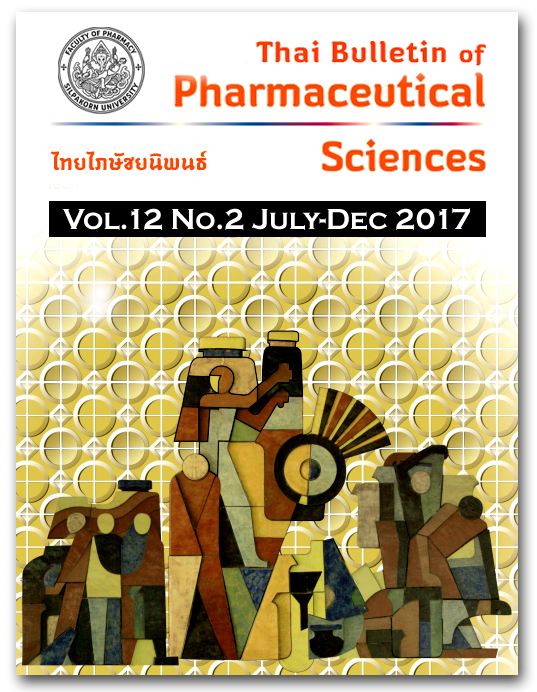EVIDENCE-BASED COMPLEMENTARY AND ALTERNATIVE MEDICINE FOR INSOMNIA
DOI:
https://doi.org/10.69598/tbps.12.2.49-67Keywords:
นอนไม่หลับ, การแพทย์เสริม, การแพทย์ทางเลือก, อาหาร, สมุนไพรAbstract
อาการนอนไม่หลับเป็นความผิดปกติของการนอนที่ทำให้เกิดปัญหาสุขภาพเรื้อรังอื่นได้ การรักษาอาการนอนไม่หลับโดยการแพทย์เสริมและการแพทย์ทางเลือก ได้แก่ การรับประทานอาหารที่อุดมด้วยกรดอะมิโนทริปโตเฟน การฝังเข็ม การเจริญสติภาวนาและการใช้สมุนไพรบางชนิด เช่น valerian, kava, German chamomile, Wuling, พุทราจีน ขี้เหล็ก เป็นต้น ซึ่งผลิตภัณฑ์ดังกล่าวมีการจัดจำหน่ายในท้องตลาดมากมาย รายงานการวิจัยระดับคลินิกถึงประสิทธิภาพในการบรรเทาอาการนอนไม่หลับของการแพทย์เสริมและการแพทย์ทางเลือกยังมีจำกัด พบความแตกต่างกันระหว่างการศึกษา ได้แก่ ขนาดของสารสำคัญ ลักษณะและปัญหานอนไม่หลับของผู้เข้าร่วมการวิจัย เป็นต้น การศึกษายังมีจำนวนผู้เข้าร่วมการวิจัยน้อยและระยะเวลาการศึกษาค่อนข้างสั้น อีกทั้งยังไม่ทราบกลไกการออกฤทธิ์ทางเภสัชวิทยาแน่ชัดของสารสำคัญในสมุนไพร และมีรายงานอาการไม่พึงประสงค์รุนแรง เช่น ภาวะตับอักเสบรุนแรงจากการใช้ผลิตภัณฑ์ที่มีส่วนผสมของ kava หรือผลิตภัณฑ์จากขี้เหล็ก ดังนั้นแม้การแพทย์เสริมและการแพทย์ทางเลือกอาจมีแนวโน้มบรรเทาอาการนอนไม่หลับได้ แต่ยังต้องการการศึกษาที่มีคุณภาพถึงประสิทธิภาพและความปลอดภัยทางคลินิกในระยะยาวต่อไป
Insomnia is a sleep disorder that causes chronic health problems as a consequence. The choices of complementary and alternative medicines (CAM) for insomnia are tryptophan-rich food, acupuncture, meditation and some herbal supplements including valerian, kava, German chamomile, Wuling, Suan Zao Ren, and Thai copper pod, many of which have been launched onto the market. Clinical research reports on efficacy of CAM on relieving insomnia are still limited. There are widely differing reports among studies including different doses of the active compounds, characteristics and causes of the insomnia problems of the participants. Many studies also have limited numbers of participants and the durations of the studies are quite short. Moreover the pharmacological mechanisms of action of active herbal compounds are not yet precisely understood. Serious side effects of some herbs have also been reported, such as severe hepatitis from products containing kava or Thai copper pod. Even though some CAM show a tendency to relieve insomnia, further well-defined studies still need to confirm the long-term clinical efficacy and safety of CAM.
Downloads
Published
How to Cite
Issue
Section
License
All articles published and information contained in this journal such as text, graphics, logos and images is copyrighted by and proprietary to the Thai Bulletin of Pharmaceutical Sciences, and may not be reproduced in whole or in part by persons, organizations, or corporations other than the Thai Bulletin of Pharmaceutical Sciences and the authors without prior written permission.



